Covid-19: NI will 'keep looking' to ease restrictions faster
- Published
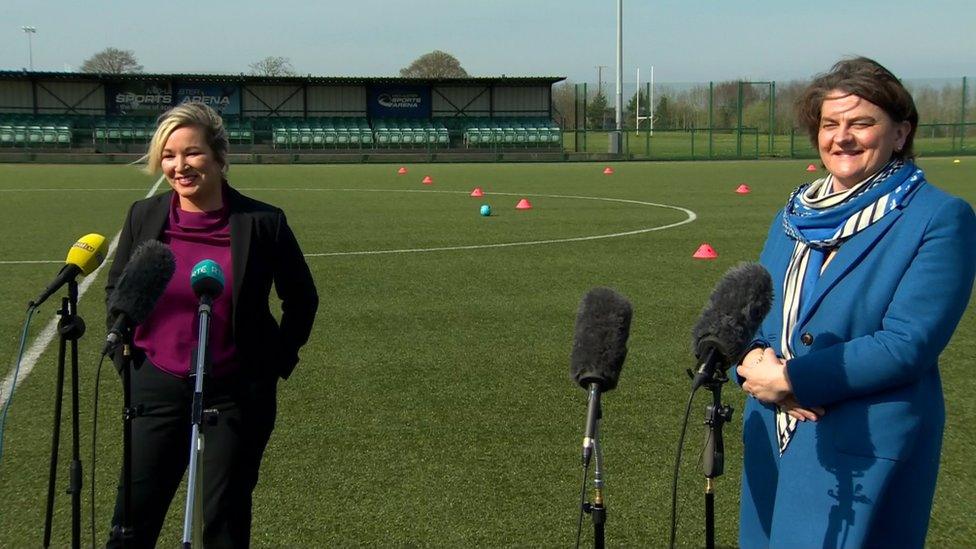
The NI Executive will "keep looking" to see if Covid restrictions can be eased faster, First Minister Arlene Foster has said.
But she added the effect of restrictions due to be eased will need to be monitored.
From Friday, close contact services such as hairdressers are to reopen and driving tests will resume.
Deputy First Minister Michelle O'Neill said the issue will be kept under review.
Mrs Foster and Ms O'Neill were speaking together at the Mid Ulster Sports Arena in Cookstown on Thursday.
Competitive outdoor sport organised by a club or individuals can also resume without spectators and with no more than 100 people participating from Friday.
"Most people in Northern Ireland have been very careful," Mrs Foster said.
"They recognise what has been happening throughout this pandemic and I think they know that we have to take things in stages, but they do need hope. And of course we'll keep looking to see if we can move faster."
But she added transmission rates across Northern Ireland had to be monitored.
Ms O'Neill said there needs to be a "cautious, steady as you go" approach.
"I think there are better days ahead but we just need people to be careful and cautious," she said.
"We've always said we'll keep things under review and as soon as we can lift things we will and that remains the case.


A day before some sectors re-open and the weather is reflecting the public's mood.
But while we are upbeat, even excited, health officials are appealing for caution.
As Arlene Foster advised this day last week - "step out but step out carefully".
Coronavirus is still out there and wants to meddle. The vaccine doesn't mean normality - just yet.
In fact two patients who have been vaccinated are in ICU with symptoms. One has had one jab, the other their second dose.
I understand that at least one of them has underlying health conditions and clinicians believe the vaccine has prevented their condition from deteriorating.
And it's worth noting, that that is just two patients out of the nearly 900,000 people who have had one dose of the vaccine and the more than 300,000 who have had both - so it is working.
As shutters are pulled up in communities, inside hospitals and heads are down preparing for a possible fourth wave in the autumn.
Laboratories are at the ready, braced for screening a continuing increase in Covid cases - alarm bells will ring if the Indian or potentially other variants are detected.
But on top of that hospitals are also preparing for a resurgence of flu.
Doctors reckon we are in for a "bad flu season." A double whammy where flu and Covid patients could be sitting side by side.
Can we prevent flu and Covid-19 from taking hold? Probably not, but continuing to socially distance, wear masks and wash hands and getting vaccinated can determine just how severe outcomes might be.

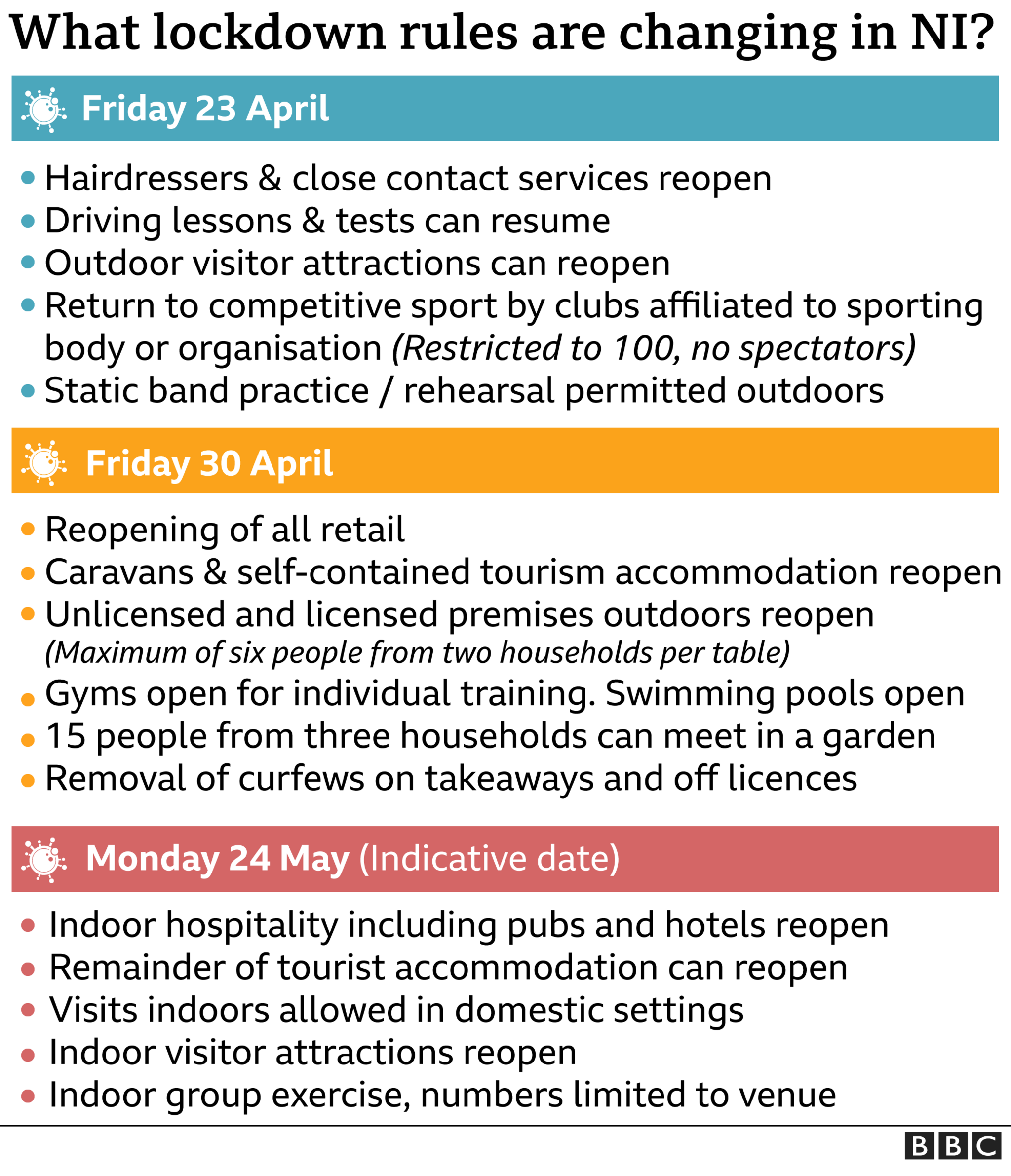

The current Reproduction (R) number in Northern Ireland, which measures how quickly the virus is spreading, is estimated to be between 0.7 and 1.05, down from 0.95-1.4 the previous week.
But the average daily number of new cases being confirmed has risen slightly.
The seven-day rolling average of new positive cases is 41 per 100,000 people, up from 38 the previous week.
The report says the "modest increase" is particularly in the 0-11 age group, and appears to be stabilising.
It adds that it may be partly due to the return of school and the rollout of testing for close contacts.
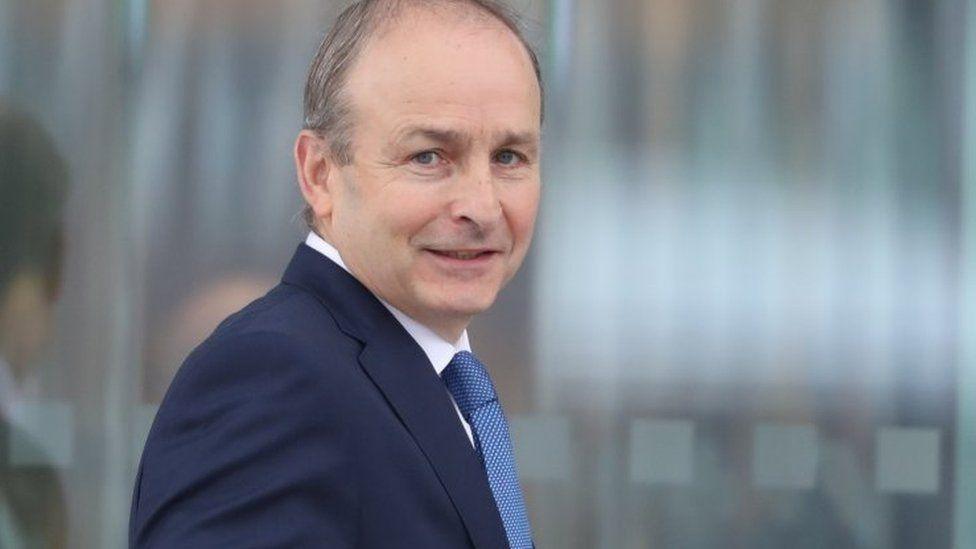
Taoiseach Micheál Martin told NI business leaders he was in regular contact with Stormont's first and deputy ministers about the pace of reopening
Earlier, Taoiseach Micheál Martin said the easing of lockdown restrictions in NI and the Republic of Ireland will not be perfectly aligned.
The Irish government is not due to announce relaxations until next month.
Mr Martin told NI business leaders he was in regular contact with Stormont's first and deputy ministers about the pace of reopening.
"We keep each other informed," he said.
"But I don't see perfect alignment or anything in the next number of weeks. There will be some gaps."
He said this was primarily down to the differences in the speed of vaccination programmes in the two jurisdictions.
"We are moving at pace now, and hopefully both north and south can look forward to reopening in a cautious and phased way with restrictions, so long as numbers remain as they are now," he added.
'Remain vigilant'
Outdoor visitor attractions in Northern Ireland will also be able to open their doors on Friday for the first time since lockdown was imposed after Christmas.
Stormont ministers agreed to the reopening dates earlier this month.
Outdoor hospitality businesses and non-essential retail can open on 30 April.
The Northern Ireland Prison Service announced on Thursday that in-person visits will re-commence from 4 May. In-person visits have been suspended since just after Christmas.
"We will of course remain vigilant to the risk of the virus and this decision will be kept under review," said Northern Ireland Prison Service director general Ronnie Armour.
"However, I know this decision will be welcome news to the people in our care and their families."
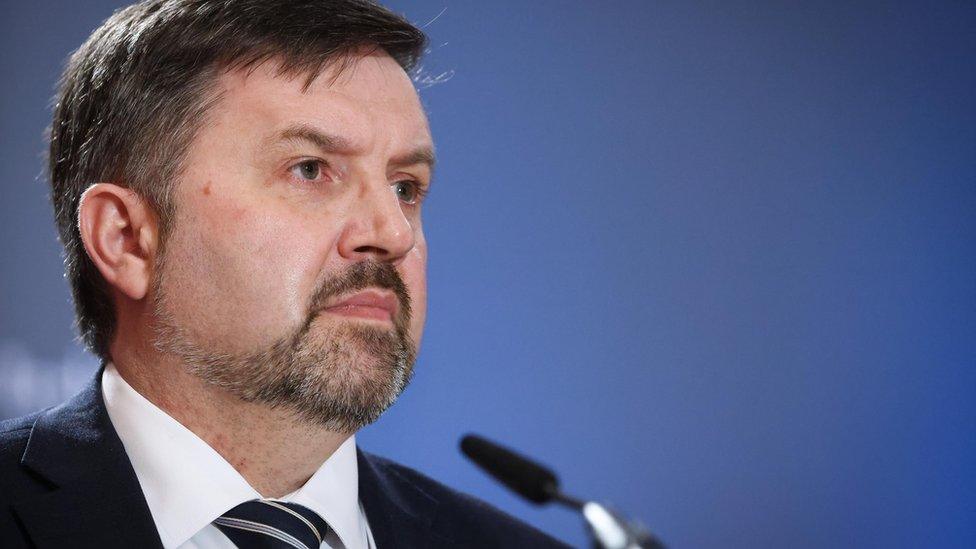
Robin Swann said was still concerned that his department was not getting full data from Passenger Locator Forms completed in the Republic of Ireland
Meanwhile, Health Minister Robin Swann said there were still difficulties in getting information about flight passengers who are crossing the border into Northern Ireland.
He said he was still concerned that his department was not getting full data from Passenger Locator Forms completed in the Republic of Ireland.
"Progress has been made, but there is still difficulties in regards to data sharing processes is what I think the minister of foreign affairs referred to recently in a joint meeting with the secretary of state," the minister told the health committee.
"One of our protections actually is the small number of indirect or direct international flights that we're currently having to manage, so that is keeping us in a pretty secure place in regards to that."
Mrs Foster expressed frustration at the delay, and also revealed that Mr Swann only found out that the so-called Indian variant of the virus was in the Republic of Ireland from media reports.
Related topics
- Published21 April 2021
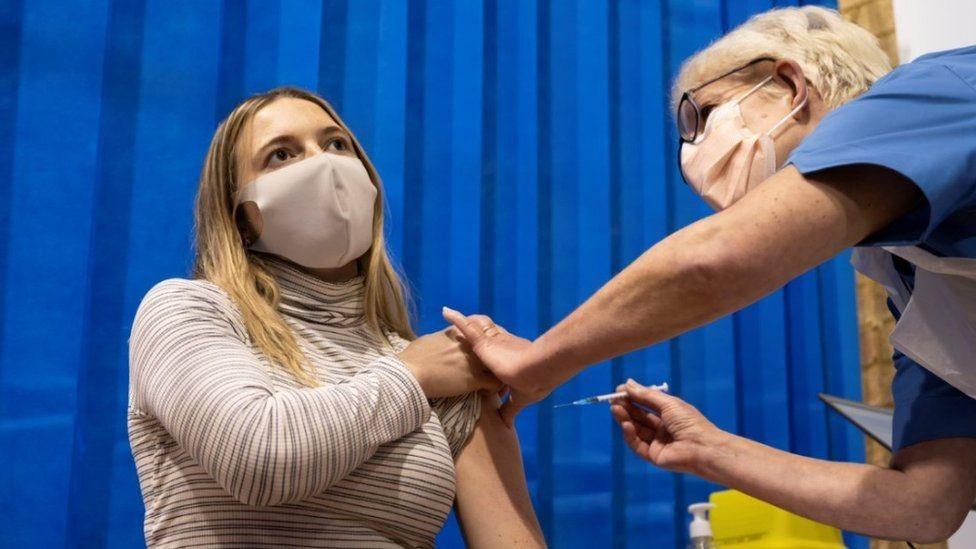
- Published29 July 2021
